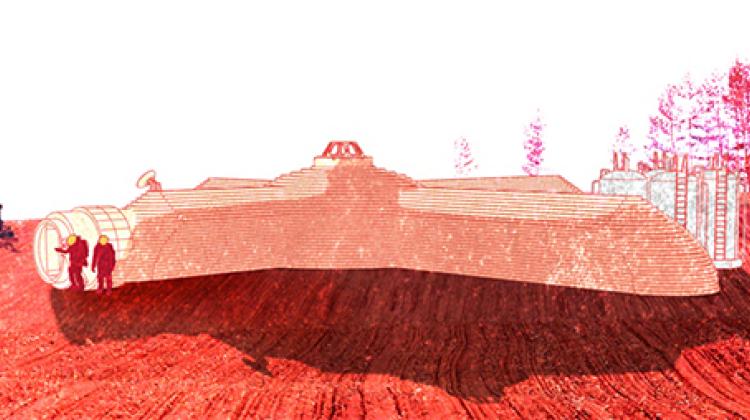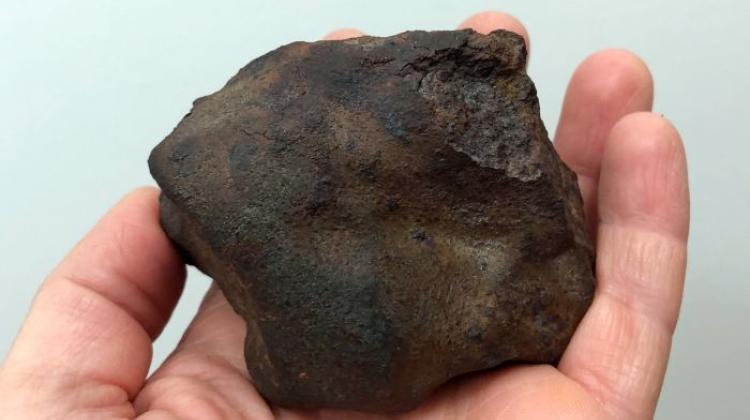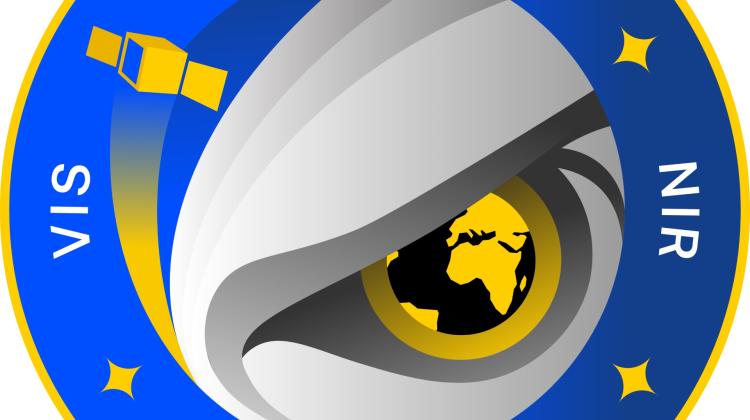Test lunar base waiting for the support of internet users
 Visualization: Scott Porter
Visualization: Scott Porter
The first lunar base in Poland and one of the first in Europe will be built in Rzepiennik Biskupi, Małopolska province. In August, it will be populated by amateur astronauts who will perform real scientific tasks. For now, however, the creators of the base are still raising funds for its construction.
The construction project is carried out by the European Space Foundation, which has just launched a project on the crowdfunding website Polak Potrafi. The lunar base (a habitat) will be built in Rzepiennik Biskupi in Małopolska. According to schedule, in August amateur astronauts will live there for a little over two weeks.
"The moon is a strategic direction of development, not only for European space exploration. We want to participate in this global mission through the construction of test lunar base, which will be used to implement research projects that in the future may be used in the real ESA or NASA lunar missions" - says the coordinator of the project Dr. Agata Kołodziejczyk, who works for the European Space Agency in the Netherlands.
The base with research area will occupy an area of nearly 2 hectares near the Queen Jadwiga Astronomical Observatory in Rzepiennik Biskupi. Construction work is scheduled to start in June after the successful completion of fund-raising. Own funds will be used to finance the purchase of equipment for the base, including machines to simulate microgravity and special algae bioreactors.
The habitat itself - covered with a thin layer of soil - on about 60 square meters will include the day area for astronauts and the research area containing the experiments. The area will be fitted with airlocks that allow real astronauts to safely go out into "space".
Already in the second half of August, six amateur astronauts will live in the habitat. Selection of the first "astronauts" has already begun. "Mission participants will carry out research projects they propose, including spectrometry analysis of rock samples collected by the rovers and adaptation of lunar regolith analogues for the needs of plant culture" - explained Dr. Jakub Mielczarek, vice president of the European Space Foundation.
"From the scientific point of view, what we are interested in the most is how the selected candidates handle their tasks. For example, we imagine that certain operation should take them two days to complete, and it may turn out that in the conditions of the mission it is four days" - explained Szymon Gryś, one of the authors of the project.
In addition, the astronauts will have to communicate with "Earth", and before that learn the appropriate protocols to enable this communication. Before the mission they will complete an abbreviated astronaut training to be able to efficiently and safely move in the new, unfamiliar environment.
"They will have to observe the same safety procedures that apply to astronauts. They will always go out of the habitat in pairs, during such walk they will have to observe the other astronaut to ensure nothing bad happens to him, venture only to such distance that in the event of rover failure they able to return on foot. In space, every single exiting the habitat by an astronaut involves a long, arduous putting on a space suit. Our astronauts will also have to put it on every time they go out" - described the PAP interlocutor.
Scientists will closely monitor the behaviour of amateur astronauts: how they work together and how efficiently they perform experiments they are tasked with. The results of observations will provide a basis for scientific publications, the more valuable that there are not many papers on the subject yet. "This way we would like to contribute to the development of a new branch of science" - said Gryś.
Analogue planetary missions are currently the only form of gaining knowledge and experience associated with the operational and technical challenges astronauts will face during manned missions. The most famous mission of this type was the "Mars 500", during which six men spent 520 days in isolation. "Mars 500" checked, among others, autonomy of the crew, ability to work with mission control, ability to solve problems, identify conflicts, and the results of performed tests and tasks.
More information about the lunar base project and the crowdfunding action is available at: https://polakpotrafi.pl/projekt/baza-ksiezycowa-pod-krakowem
PAP - Science and Scholarship in Poland
ekr/ mrt/
tr. RL
Przed dodaniem komentarza prosimy o zapoznanie z Regulaminem forum serwisu Nauka w Polsce.















